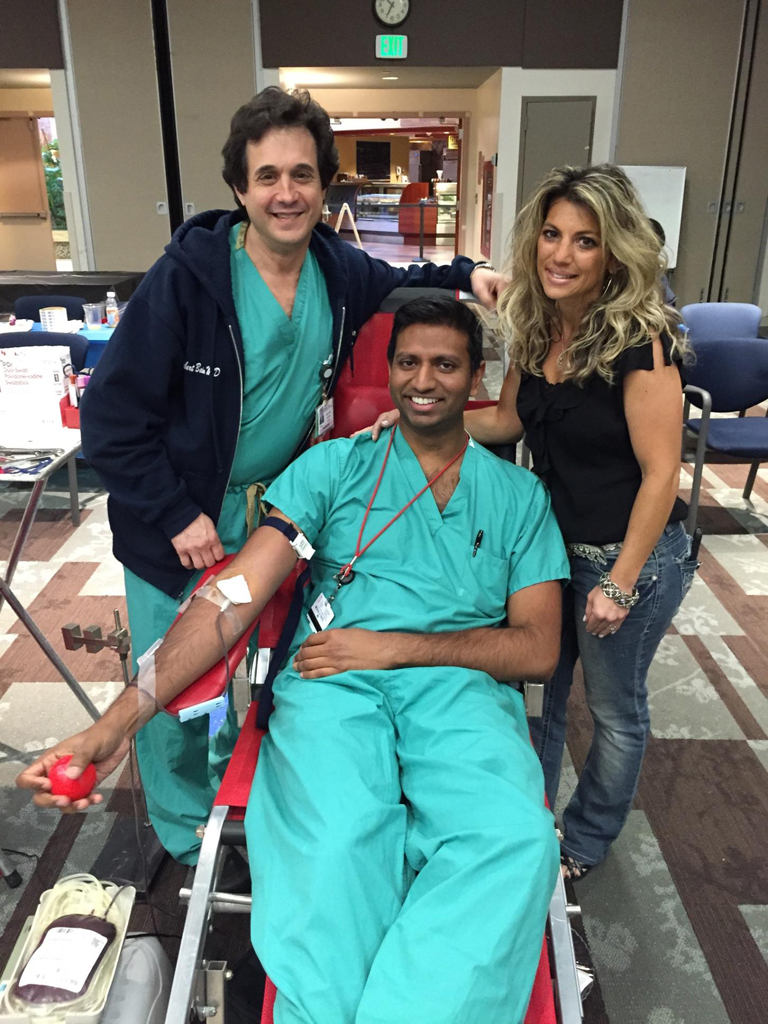The New Jersey Department of Health is encouraging residents to make blood donations a part of their routine in 2018.
“National Blood Donor Month [in January] is an excellent time to make blood donation a New Year’s Resolution,” Acting Health Commissioner Christopher Rinn said in a prepared statement. “By rolling up their sleeves and giving blood, donors make a significant difference in people’s lives. Every donation is important, and generous blood and platelet donations help ensure lifesaving blood products reach those who need them 365 days of the year.”
During winter, blood donations typically decrease due to the flu season and unpredictable weather conditions that often turn severe and result in blood drive cancellations, according to the statement. Moreover, blood donations normally decline during the busy end-of-year holidays, so blood centers and hospital collection sites often look to January to relieve shortages at the beginning of the New Year.
According to the American Red Cross, every two seconds someone in the U.S. needs a blood transfusion due to illness, to treat an injury, or during surgery. A single unit of blood from one donor can save up to three lives.
There is no artificial substitute for blood, according to the statement.
Whole blood donation, the most common type of blood donation, usually takes about an hour, though the actual donation takes about eight to 10 minutes during which approximately a pint of “whole blood” is given. People are eligible to donate whole blood every 56 days, according to the statement.
Another option is donating platelets, which are a key clotting component of blood often needed by cancer patients, burn victims and bone marrow recipients. Unlike whole blood, which has a shelf life of 42 days, platelets must be transfused within five days of donation, so hospitals must have a steady supply on hand, according to the statement. Platelets can be donated every seven days up to 24 times a year.
Plasma also is needed and is often used in trauma situations. Plasma is the clear, straw-colored liquid portion of blood that remains after red blood cells, white blood cells, platelets and other cellular components are removed, according to the statement. It is the essential starting material used in the manufacture of therapies that help thousands of people worldwide with rare, chronic diseases to live healthier, productive lives. Plasma can be donated every 28 days or up to 13 times a year.
A fourth donation option is double red cell donation, which is similar to whole blood donation except a special machine is used to allow the donor to safely donate two units of red blood cells in one donation while receiving back the platelets and plasma, according to the statement. This procedure lets the donor give more of that portion of the blood that is needed most by patients. Donors are eligible to give every 112 days.
Individuals who are 17 years of age (16 with parental consent), weigh at least 110 pounds and are in generally good health may donate blood in New Jersey.
To learn more about blood donation in New Jersey and to schedule an appointment to donate, contact one of the following blood centers:
- American Red Cross at www.redcrossblood.org
- Central Jersey Blood Center at www.cjbcblood.org
- New York Blood Center at www.nybloodcenter.org
- Community Blood Services at www.communitybloodservices.org
- Miller-Keystone Blood Center at www.giveapint.org

